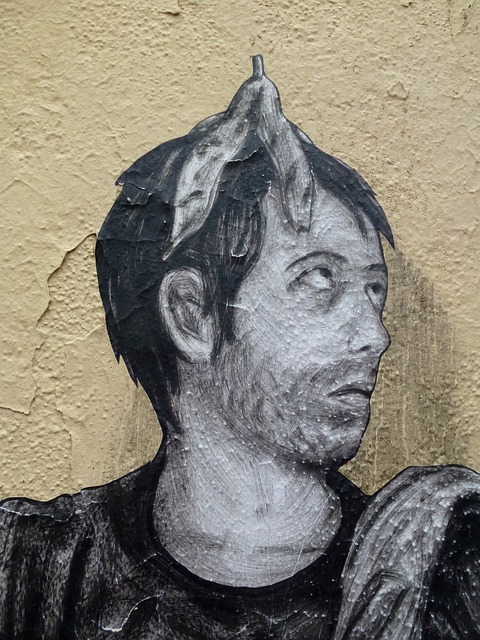Verrucas, caused by HPV, can appear anywhere but commonly affect feet and hands. The UK offers diverse removal options, including cryotherapy, topical treatments, and surgical excision, catering to different skin types and preferences. Hygiene is crucial, with professional services recommended for safety and effectiveness. Tailored approaches are needed based on skin types, avoiding harsh methods that can cause scarring or discolouration. Proper aftercare is vital for successful healing and preventing reoccurrence, along with foot care, protective footwear, and a balanced lifestyle to avoid future verrucae.
Looking for safe and hygienic verruca removal options in the UK? This comprehensive guide explores everything you need to know, from understanding different verruca types and their causes to effective treatment methods available across the UK. We delve into safe removal techniques tailored to various skin types and provide essential aftercare and prevention strategies. Discover expert advice on achieving clear, healthy skin without complications.
- Understanding Verrucas: Types and Causes
- The Importance of Hygienic Removal Practices
- Effective Treatment Options in the UK
- Safe Removal Techniques for Different Skin Types
- Aftercare and Prevention Strategies
Understanding Verrucas: Types and Causes
Verrucas are common warts that can appear on any part of the body, but they often manifest on the feet and hands. They are caused by the human papillomavirus (HPV), which infects the top layer of skin. There are several types of verrucas, including common warts, flat warts, and filiform warts, each with distinct characteristics. The most prevalent type is the common verruca, often resembling a small cauliflower with a rough surface. They can be painful and uncomfortable, especially when located on weight-bearing areas like the feet.
In the UK, verruca removal services are widely available to cater to diverse skin types and preferences. While some people choose to leave them untreated, others opt for removal due to aesthetics or discomfort. Common methods include cryotherapy (freezing), topical treatments, and surgical excision, each with its own advantages and considerations. Understanding these variations can help individuals make informed decisions regarding their verruca removal options in the UK.
The Importance of Hygienic Removal Practices
When considering verruca removal in the UK, hygiene plays a pivotal role, especially for individuals with diverse skin types. Proper removal practices are essential to prevent infections and ensure positive outcomes. Unhygienic methods can lead to further complications and discomfort, which is why seeking professional services is advisable.
In the UK, many medical professionals and dermatologists offer safe and hygienic verruca removal treatments, tailored to different skin types. These experts employ sterile techniques, using medical-grade tools to minimise the risk of infection. By adhering to strict hygiene protocols, they effectively remove verrucae while maintaining patient safety and comfort.
Effective Treatment Options in the UK
When it comes to verruca removal in the UK, there are several effective treatment options available that cater to different skin types. From conventional medical procedures to modern, non-invasive techniques, individuals across the nation have access to safe and hygienic solutions. One widely recognised method is cryotherapy, where liquid nitrogen is used to freeze and destroy verrucae. This approach is popular due to its relatively quick procedure time and high success rates.
Another option gaining traction is laser treatment, which targets the virus causing the verruca with precise laser beams. This non-invasive method is suitable for sensitive skin types and offers a painless experience. Additionally, topical treatments, both prescription and over-the-counter, provide an at-home solution for those seeking convenience. These options ensure that everyone, regardless of their skin type or preference, can access effective verruca removal in the UK.
Safe Removal Techniques for Different Skin Types
When it comes to verruca removal in the UK, different skin types require tailored approaches for safe and effective treatment. For individuals with sensitive skin, traditional methods like cryotherapy (freezing) might cause discomfort or irritation. In such cases, professionals often recommend milder options like salicylic acid or laser treatments. These techniques are less aggressive, making them suitable for those with delicate skin, ensuring comfort during the removal process.
For those with darker skin tones, it’s crucial to approach verruca removal with extra caution. Certain methods, like shaving or rough scraping, can lead to scarring or skin discolouration. Professionals in the UK advocate for more gentle techniques like dermaplaning or targeted laser therapy, which minimize the risk of such side effects, providing a safer and more hygienic verruca removal experience tailored to diverse skin types.
Aftercare and Prevention Strategies
After verruca removal in UK, proper aftercare is essential for optimal healing and to prevent reoccurrence. Keeping the treated area clean and dry is crucial; wash hands frequently and avoid touching the site to reduce the risk of infection. Soften any scabs or dead skin gently with warm water and a mild soap before carefully removing them with sterile tweezers or a surgical blade. Applying a recommended antiseptic cream or gel can help maintain hygiene and aid in healing.
Prevention is key when it comes to verruca removal UK. Regular foot care, including keeping nails trimmed and clean, is vital to minimize contact with potential pathogens. Wearing protective footwear in public showers or pools can also reduce exposure. Additionally, strengthening the immune system through a balanced diet, adequate sleep, and regular exercise may aid in preventing verrucae from returning.
When it comes to verruca removal UK, understanding your skin type and adopting hygienic practices is paramount. The right treatment options tailored to your specific needs can ensure effective and safe removal. By following aftercare guidelines and preventing recurrence, you can bid farewell to verrucas and enjoy clear, healthy skin. Remember, with the right approach, verruca removal can be a smooth and successful process for all UK residents seeking relief from these common skin growths.
